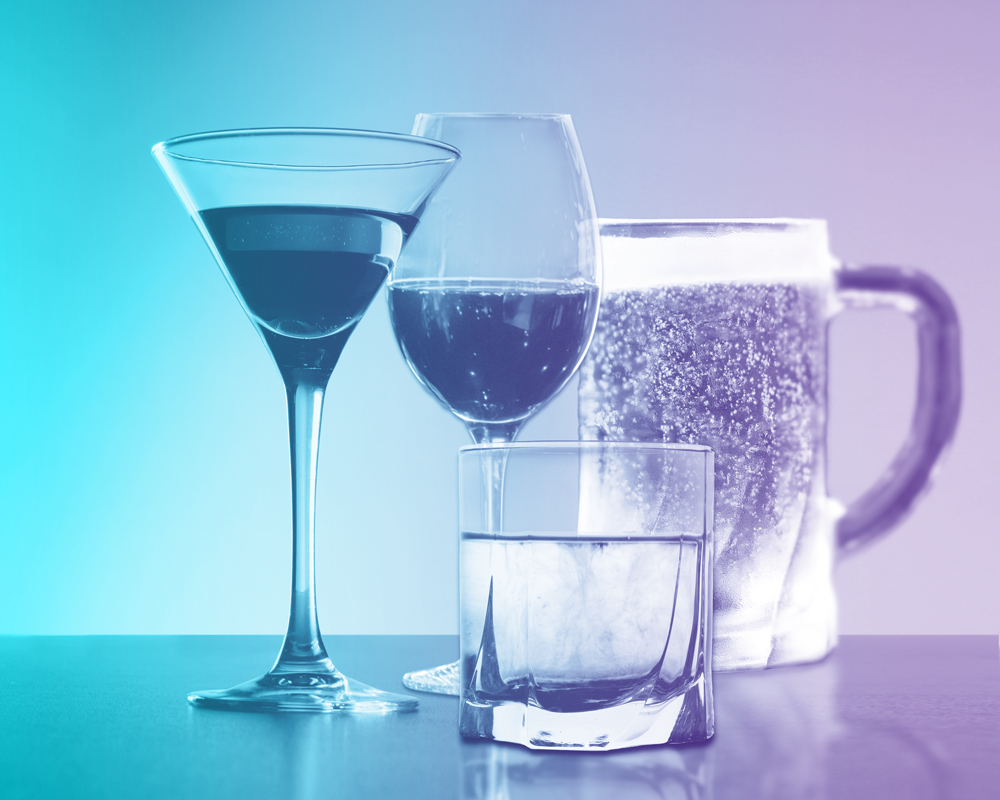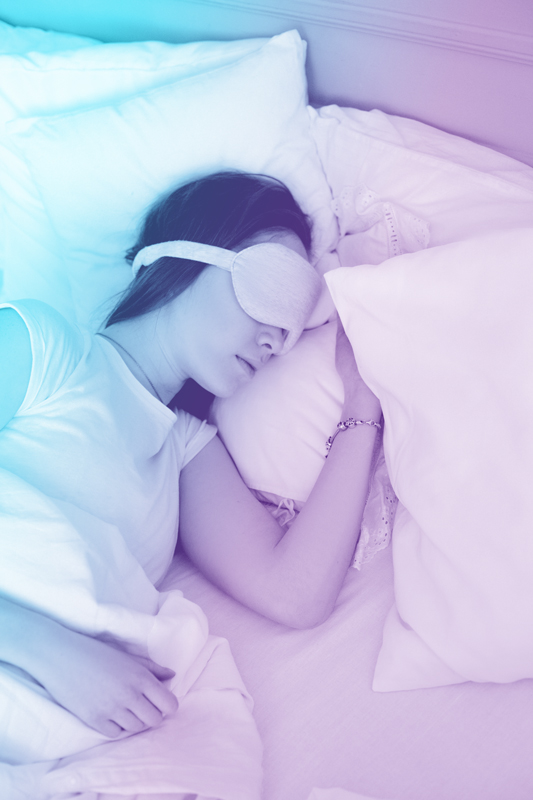Get Clean! Call us today!
1 (888) 330-2532
Alcohol Addiction
Alcoholism and Mental Health
Few things are more important to a person’s quality of life than a positive state of mental health. Suffering from an alcohol use disorder is an enormous strain not only on a person’s body but on their mind, as well. For many, mental health disorders and alcohol use disorders go hand in hand, with one exacerbating the other in an endless cycle. Fortunately, there are ways to treat both alcoholism and mental health disorders. Learn more about alcohol use disorders and how mental health can be affected by them in this guide.

What Is Alcohol?
Also known as ethanol or ethyl alcohol, alcohol is an ingredient in wine, beer and liquors that cause the body to experience drunkenness. Alcohol is widely available and generally accepted socially which makes it incredibly easy for alcohol to be abused. Very few countries have banned alcohol, and most have few regulations on its use apart from minimum age and laws against driving while under the influence.
Alcohol is a depressant, sometimes called “downers,” which means that it impacts your central nervous system and slows your brain activity. Depressants are often prescribed to treat disorders such as insomnia and anxiety because of their ability to relax the individual by slowing them down. This is why someone who has been drinking might move slowly, slur their speech, exhibit issues with coordination or fall asleep.
Although it does depress the system, alcohol also can be stimulating, with some users experiencing an increase in heart rate and aggression. Because alcohol releases dopamine, the neurotransmitter that is associated with pleasure, it can also cause those drinking to feel more social and confident. These feelings do not last, though.

What Is Alcoholism?
Alcohol use disorder or alcohol use disorder is a chronic disease. It occurs when a person suffers from a mental and physical dependence on alcohol. Those with alcoholism may struggle to stop themselves from drinking altogether or drinking a controlled amount, even when their health, relationships, career and lifestyle may suffer from it.
What Are the Signs of Alcoholism?
The signs of alcohol use disorder can present very differently from present to person. Behavioral, physical, emotional and mental symptoms may be present.
Behavioral Symptoms
Physical symptoms of alcoholism may be noticeable to acquaintances and strangers, but for those who know a person best, behavioral symptoms will likely be some of the first to show. These can be some of the strongest indicators that a person is dealing with a serious addiction to alcohol. While not every person with alcohol abuse disorder will exhibit these symptoms, they are a good starting place for those worried about a loved one’s relationship with alcohol. Behavioral symptoms include:
- Significant shifts in behavior
- Loss of interest in favorite activities
- Changes in performance at work
- Sudden changes in temperament
- Disinterest in personal hygiene
- Neglecting family or career responsibilities
- Unusual withdrawing of money from bank accounts
Physical Symptoms
Physical symptoms are often easiest to identify when a person is dealing with alcohol use disorder. These changes may indicate a problem:
- Slurred or unclear speech
- Excessive fatigue
- Red or flushed skin
- Double vision
- Bloodshot eyes
- Difficulties with coordination and balance
- Disheveled appearance
- Smells like alcohol
Emotional Symptoms
Emotional symptoms can be more difficult to identify because so many outside circumstances can cause emotional disturbances in a person’s life. Still, be on the lookout for:
- Mood swings
- Reckless behavior
- Overwhelming sadness or anger
- Unusual aggressiveness or passivity
Mental Symptoms
The mental symptoms associated with alcohol use disorder are particularly notable in adolescents and can impact them more long-term because their brain function is still developing. Common mental symptoms of alcoholism are:
- Difficulty concentrating
- Memory issues
- Trouble processing speech
Alcohol Addiction
Alcoholism FAQs
Is Alcoholism a Disease?
Alcohol use disorder or alcoholism is a disease of the brain. It is a medical condition that impacts the brain and body functioning and it often requires significant treatment in order for it to be controlled. The disorder’s severity can range from mild to severe. A person can develop alcohol use disorder over a short period of time or it may accumulate over years of use. Just because a person uses alcohol in a controlled and acceptable way for part of their life does not mean that they cannot or will not develop a problematic relationship with alcohol down the line.
Why Is Alcoholism Considered a Chronic Disease?
Historically, alcohol abuse was not considered to be a disease, but in recent decades, the professional community has recognized that alcoholism is a very serious chronic disease. Research has proven that alcoholism and other substance use disorders result from significant changes in the user’s neurobiology that develop with repeated alcohol or drug use. The changes that occur impact how a person’s brain learns, makes decisions, experiences pleasure and stress, and demonstrates self-control.
The dopamine that is released when a person drinks initially is a normal amount. With prolonged use of alcohol, though, the basal ganglia’s nerve cells experience less sensitivity to dopamine. This results in a person abusing alcohol having to use more and more to feel the same reward that a small amount once caused. With continued use, a person will develop a tolerance to alcohol and require higher amounts of alcohol to feel the same high.
How Common Is Alcoholism?
According to recent statistics from the National Institute of Alcohol Abuse and Alcoholism, over 14 million people in the United States ages 12 and up have alcohol use disorder. Of that number, 9 million were men and over 400,000 were adolescents.
Is Alcoholism Fatal?
Over 95,000 people die each year in the United States from alcohol-related problems including alcohol-associated liver disease, stroke, heart disease and cancers. Globally, that number rises to over 3 million. While individuals living with alcohol use disorder typically die from physical issues caused by the abuse of alcohol, some deaths related to alcohol use are due to driving fatalities. Alcohol plays a part in over a quarter of driving fatalities annually.
What Causes Alcoholism?
While there isn’t one cause of alcohol abuse disorder, many things may factor into the likelihood that a person will develop alcoholism.
Addictions appeal to the part of the brain that processes pleasure. Regular use of alcohol causes your brain to associate drinking with the feelings that the body experiences when dopamine is released, such as euphoria and self-confidence. This can lead to cravings and, for some, dependency.
The more that a person drinks, the less they experience the high typically associated with drinking. Heavy drinkers may also begin to suffer from withdrawal when they do not drink, which in turn causes them to drink more to try and keep from experiencing symptoms of withdrawal.
What Factors Can Increase a Person’s Risk of Developing Alcoholism?
Many factors can contribute to an increased likelihood of alcohol use disorder.
Family History and Genetics
Those with a parent or other close relative who has lived with alcohol abuse disorder are more likely to experience it themselves. According to research from the NIAAA, genes contribute roughly half of a person’s risk for alcoholism. This is why people often say, “Alcoholism runs in the family.”
Frequent Drinking
Frequent binge drinking, such as drinking every week for a football game, can lead to addiction over time. Many of those struggling with alcohol use disorder started out participating in social binge drinking such as that which is common on college campuses.
Underage Drinking
The NIAAA reports that individuals who begin drinking before they turn 15 are four times more likely to have an alcohol addiction when they are older.
Sociological Factors
The drinking habits of your family, community and culture can impact your chances of developing alcoholism. Poor parental support and pressure from peers can also increase those odds.
Male Gender
Men are statistically much more likely to become addicted to alcohol than women.
Trauma
Individuals who have experienced trauma such as childhood, domestic or sexual abuse are more likely to have alcohol use disorder.
Mental Health Conditions
Mental health disorders such as depression and bipolar disorder can up the likelihood that you will develop alcohol abuse disorder, particularly if you use alcohol as a means of self-medicating.

What Are the Effects of Alcohol Abuse on the Brain?
In addition to altering the brain’s experience of dopamine, alcohol abuse has other major effects on the brain. Memory, speech and judgment are all adversely affected by prolonged alcohol abuse and the neurons in the brain can even be reduced in size over time.
This is particularly true of a brain that is still developing. The impact of alcohol abuse on an adolescent brain can have serious consequences, negatively impacting the development of the brain which results in long-term damage.
Alcohol-induced blackouts are another result of alcohol abuse. These blackouts are essentially gaps in the memory that causes a person to not remember events that happened when they were under the influence of alcohol.
What Is a Dual Diagnosis?
For many, addiction to alcohol is only a piece of the puzzle. Mental health disorders and alcoholism often live side by side. When both are found to be present in a patient, it is called dual diagnosis.
Someone who is diagnosed with general anxiety disorder, for example, may drink to try to control their worry, irritability and difficulty sleeping. While excessive drinking does not cause behavioral disorders, it can exacerbate those symptoms that are present because of them. According to the National Alliance on Mental Illness, nearly a third of those dealing with alcohol use disorder have a co-occurring mental illness and around half of those with a severe mental illness have issues with substance abuse.
Though any gender may experience a dual diagnosis, men have a higher likelihood. Other factors can also increase the chances of a person developing co-occurring disorders, including those who come from a lower socioeconomic status, veterans of the military and individuals who have other general illnesses.
What Co-Occurring Disorders Are Commonly Seen With Alcoholism?
While virtually any mental health disorder can co-occur with alcohol use disorder, some are seen more frequently with it than others. Some common examples of co-occurring disorders are depression, anxiety disorders, eating disorders, bipolar disorder, post-traumatic stress disorder, personality and mood disorders, attention deficit hyperactivity disorder and schizophrenia.
What Are Depression Symptoms?
Depression is a disorder in which the individual experiencing it feels persistent feelings of sadness. Sometimes referred to as major depressive disorder or clinical depression, depression significantly impacts a person’s ability to function. If you or a loved one have an alcohol use disorder and are worried you also have a mental health disorder such as depression, you may want to be on the lookout for symptoms of major depressive disorder. These include:
- Feeling hopeless, sad, tearful, empty
- Irritability, frustration, anger
- Loss of interest in favorite activities
- Insomnia or changes in sleep patterns
- Lack of energy or listlessness
- Change in appetite
- Weight loss or weight gain
- Feeling worthless
- Thoughts of death or suicide
- Suicide attempts
What Are Anxiety Symptoms?
People who experience frequent or extreme anxiety may be suffering from an anxiety disorder. While experiencing anxiety occasionally is a natural part of life, those with anxiety disorders experience a degree of anxiety that makes everyday life difficult. If you or a loved one have alcohol use disorder and believe an anxiety disorder may also be present, look for these symptoms:
- Difficulty controlling worry
- Difficulty sleeping
- Panicking
- Nervousness, restlessness
- Feelings of impending danger or doom
- Rapid breathing or hyperventilation
- Trembling
- Sweating
- Trouble concentrating
- Gastrointestinal problems
- Increased heart rate
How Does Alcoholism Affect Sleep?
Because alcohol is a depressant and depressants are known for slowing down the brain and body and inducing sleepiness, it’s easy to think that drinking alcohol can help a person sleep. The relationship between alcohol and sleep has been extensively studied, however, and research has shown that alcohol actually has a very negative effect on sleep long-term, particularly when the person is drinking in excess.
According to studies available through the Sleep Foundation, a low amount of alcohol use before bed resulted in a 9.3% decrease in sleep quality. A low amount is defined here as less than two drinks for men and less than one drink for women. Moderate alcohol use, about two drinks for men and one for women, decreased sleep quality by 24%. Any amount more than that was categorized as high amounts of alcohol and decreased sleep quality by a whopping 39.2%.
There are many reasons that alcohol disrupts healthy sleep cycles. Alcohol use before bed can cause the symptoms of sleep apnea to worsen and increases the likelihood of a person experiencing sleep apnea by 25%. Because alcohol can take a while to cycle through the system, that process can wake a person who is already sleeping. Alcohol also suppresses the body’s ability to experience REM sleep which is essential to a person getting quality sleep that makes them feel rested.
When drinking before bed causes a person to have a poor night’s sleep, a negative cycle may begin. A person who is having trouble sleeping may turn to drink to try and help themselves fall asleep, but because sleeping with alcohol actively in the system results in poor sleep, they will feel tired again the next day. It’s not surprising, then, that research has linked chronic sleep issues with long-term alcohol abuse.

What Is Alcohol Withdrawal?
Giving up alcohol cold-turkey or going a prolonged period of time without drinking can cause serious issues for those with alcohol use disorder. Quitting drinking can be extremely dangerous for those who have been using alcohol long-term and is best done under the watch of medical professionals who can help minimize physical and mental distress.

Symptoms of Alcohol Withdrawal
How a person experiences withdrawal varies widely. There are some common signs, though, that may indicate a person is experiencing withdrawal. If you suspect a person may be experiencing alcohol withdrawal, look for these signs:
- Anxiety
- Confusion
- Fever
- Hallucinations
- Headache
- High blood pressure
- Insomnia
- Racing heart
- Seizures
- Shaking
- Sweating
- Vomiting
Can Therapy for Alcoholism and Mental Health Disorders Help?
Therapy is one of the most important tools medical professionals have at their disposal to help those dealing with alcoholism and mental health disorders deal with their dual diagnoses. There are a number of different therapies that are used effectively on the path to sobriety. Individual therapy includes trauma resolution therapy, identity reconstruction therapy, cognitive self-management techniques, personal growth development strategies and movement therapy.
In addition to individual cognitive behavioral therapy, patients can benefit from therapy in a group setting, family counseling and creative and recreational therapy. For many with alcohol use disorder and co-occurring mental health disorders, therapy can be a lifelong practice that helps them lead a life of intention and purpose.
Individuals with alcohol use disorder and co-occurring mental health disorders can recover and live satisfying, productive, healthy lives. If you would like to learn more about dual diagnoses and how mental health disorders can exist and be treated alongside alcohol use disorder and other addictions, call us today at 888-330-2532 to hear more about their full spectrum of alcoholism treatment options.
Giving up alcohol cold-turkey or going a prolonged period of time without drinking can cause serious issues for those with alcohol use disorder. Quitting drinking can be extremely dangerous for those who have been using alcohol long-term and is best done under the watch of medical professionals who can help minimize physical and mental distress.
Sources:
- https://www.nami.org/NAMI/media/NAMI-Media/Images/FactSheets/Dual-Diagnosis-FS.pdf
- https://www.verywellmind.com/is-alcohol-a-depressant-5191776
- https://www.webmd.com/mental-health/what-is-dopamine
- https://my.clevelandclinic.org/health/diseases/3909-alcoholism
- https://www.niaaa.nih.gov/alcohols-effects-health/alcohol-topics/alcohol-facts-and-statistics
- https://www.verywellmind.com/alcoholism-as-a-disease-63292
- https://www.niaaa.nih.gov/publications/alcohol-and-brain-overview
- https://pubs.niaaa.nih.gov/publications/arh25-2/101-109.htm
- https://www.sleepfoundation.org/nutrition/alcohol-and-sleep
